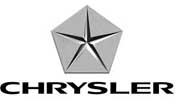Chrysler will now recall 2.7m vehicles
WASHINGTON, USA: Chrysler announced on Tuesday (18 June) that it would bow to the US safety regulator's pressure to recall 2.7 million Jeep Liberty and Grand Cherokee models over a fire risk that caused dozens of deaths.

Two weeks after rejecting the National Highway Traffic Safety Administration's recommendation for a recall, Chrysler has made an about turn and will conduct a voluntary campaign for the vehicles in question. It will provide a visual inspection and, "if necessary", may improve the rear structure of the sport utility vehicles so it is better able to withstand crashes.
Chrysler nevertheless maintained that the Grand Cherokees made between 1993 and 2004 and the Libertys made between 2002 and 2007 met the US safety standards.
"The analysis of the data confirms that these vehicles are not defective and are among the safest in the those vehicle segments," Chrysler said in a statement.
"Nonetheless, Chrysler recognises that this matter has raised concerns among its customers and wants to take further steps, in co-operation with NHTSA, to provide additional measures to supplement the safety of its vehicles," the statement said.
The NHTSA said that it was pleased that Chrysler has agreed to take action to protect customers and the driving public.
"Consumers affected by the safety recall and customer satisfaction campaign should have their vehicles serviced promptly once they receive notification from Chrysler," the NHTSA said.
Recall rebuffed
Earlier this month a letter from the NHTSA to Chrysler recommended the recall.
The NHTSA's year-long investigation came to a "tentative" conclusion that the fuel tank's placement behind the rear axle in the SUVs raised safety risks.
The agency found that fires broke out in the Jeeps after a rear-end collisions ruptured the gas tank. As many as 51 deaths had been reported as a result of such incidents.
But in a rare rejection by a car manufacturer Chrysler declined to recall the SUVs, saying the agency's conclusions were "based on an incomplete analysis of the underlying data."
Chrysler conceded that "about 21" deaths had occurred in rear-impact collisions that resulted in fires but said the rest of the deaths may have been tied to other types of accidents.
The NHTSA insisted on the recall as it found the cars the defect may pose an unreasonable risk to passenger safety and insisted on the recall.
The details of the recall and the likely costs to Chrysler are unknown.
"Chrysler obviously calculated the risks and benefits and concluded that the cost to repair these vehicles isn't as expensive as the potential long-term damage that comes from bad publicity," said Michelle Krebs of car industry specialists Edmunds.com.
"This was probably the right decision by Chrysler. Last year there were 659 recalls issued by NHTSA, and none of them appear to have had a lasting negative impact on any brand," Krebs said.
Source: AFP via I-Net Bridge